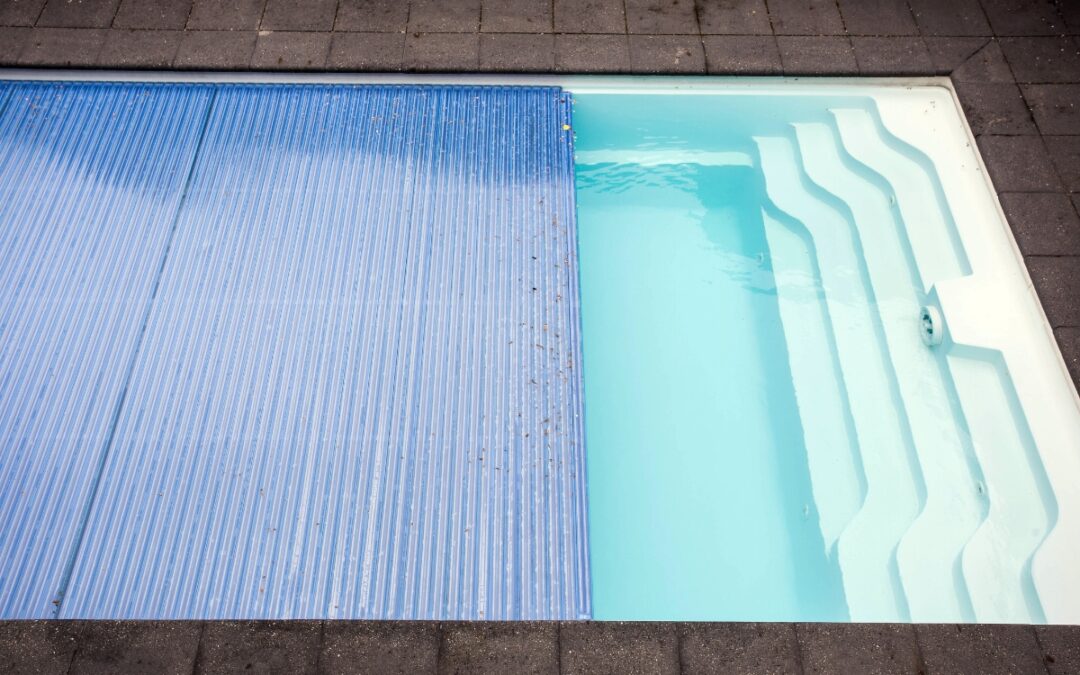As the days grow shorter and the temperatures start to drop, it’s time to bid farewell to another glorious summer and prepare for the long winter ahead. And for many homeowners, this means closing up their beloved pools until the warm days of spring return. But fear not, because in this blog post, we’re going to show you just how easy it can be to close your pool for the winter season.
Closing your pool for winter is not only about protecting your investment, but it also ensures that when the warm weather returns, you’ll be able to dive right back in without any hiccups. From draining and cleaning to adding the right chemicals and covering it up, we’ll guide you through each step, making the process a breeze.
So, let’s wave goodbye to summer and get ready to close our pools for winter in the easiest way possible. Get ready to say hello to a worry-free off-season with our comprehensive guide to closing your pool for winter.
Closing Pool for Winter: Essential Tips for a Hassle-Free Shutdown
Understanding the Importance of Closing Your Pool for Winter
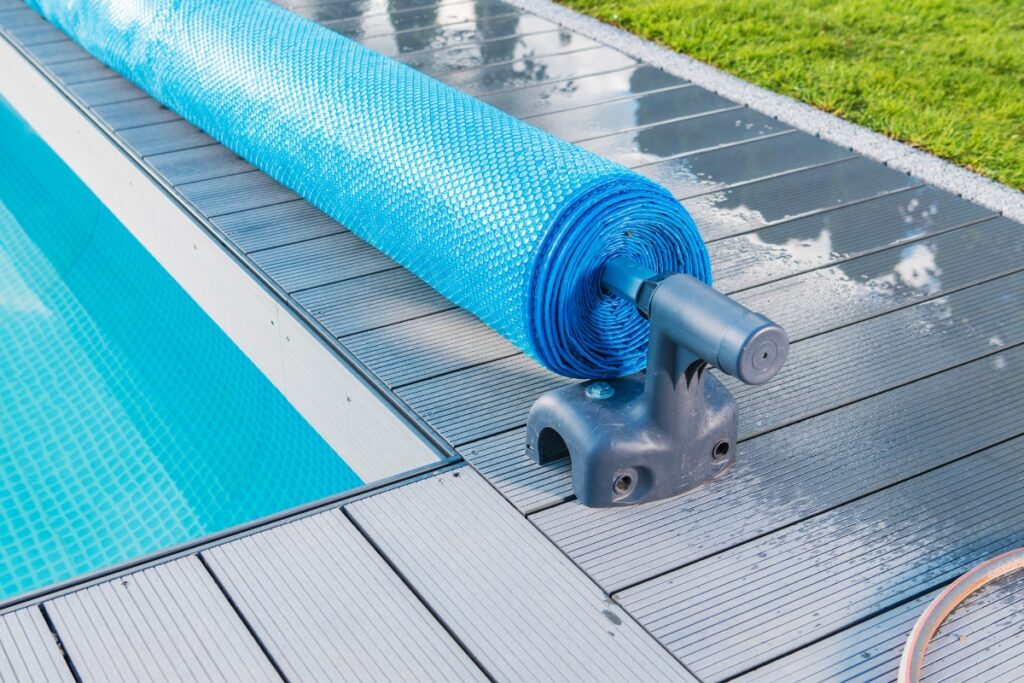
Closing your pool for winter is an essential step in maintaining its cleanliness and longevity. By properly closing your pool, you can protect it from the harsh winter weather and prevent any damage that may occur. Let’s delve into the importance of closing your pool for winter and the steps you should take to ensure a smooth transition into the colder months.
One of the main reasons why closing your pool for winter is important is to prevent freezing. When water freezes, it expands, and this expansion can cause significant damage to your pool’s pipes, filters, and other equipment. By draining the water from your pool and properly winterizing it, you can avoid costly repairs and ensure that your pool is ready for use when the warmer months arrive.
Closing your pool also helps to prevent the buildup of debris and algae. Leaves, twigs, and other organic matter are more likely to accumulate in an uncovered pool during the winter months. This debris can create a breeding ground for algae and other bacteria, making it more challenging to clean and maintain your pool once spring arrives. By covering your pool and taking the necessary precautions, you can keep it clean and reduce the time and effort required for maintenance.
Another important reason to close your pool for the winter is to protect it from the elements. Snow, ice, and freezing temperatures can cause damage to your pool’s surface, equipment, and plumbing. By winterizing your pool, you create a barrier of protection that shields it from these harsh conditions. This ensures that your pool remains in optimal condition and extends its lifespan.
Now that we understand the importance of closing your pool for winter, let’s go through the necessary steps to ensure a proper closure.
Preparing Your Pool for Winter: Step by Step Guide
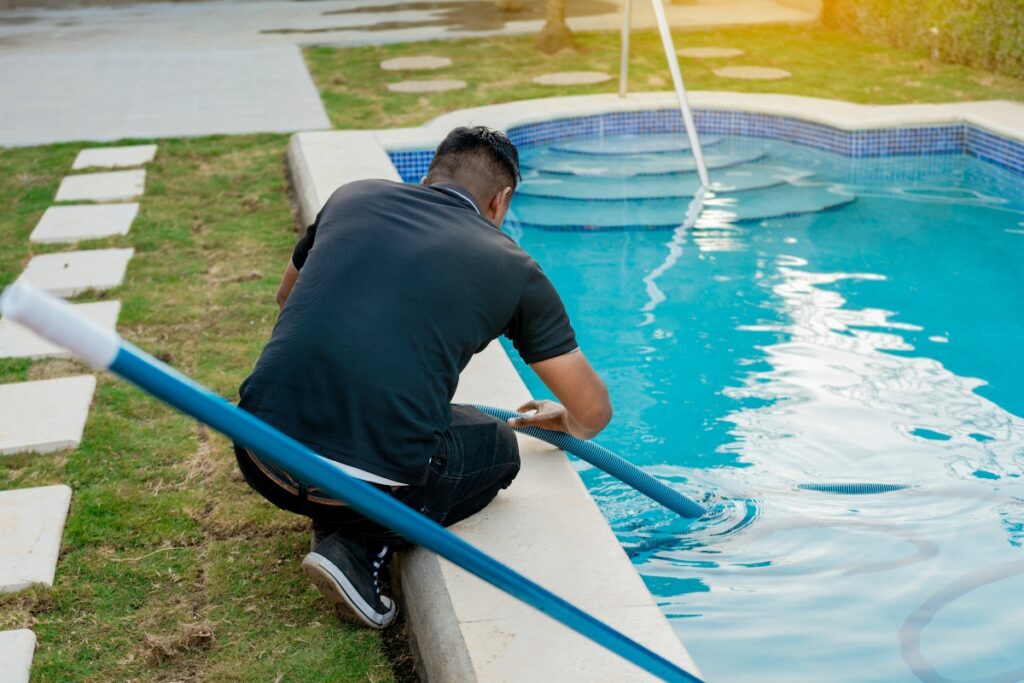
Closing your pool for winter is an essential part of pool maintenance to ensure that it stays in good condition during the colder months. By following a step-by-step guide, you can properly prepare your pool for winter and avoid any potential damage or costly repairs. Here is a detailed breakdown of the process:
Step 1: Clean and Balance the Water Chemistry
Before closing your pool, it’s crucial to clean it thoroughly. Remove any debris, leaves, and dirt from the surface and bottom of the pool. Brush the walls and vacuum the pool to eliminate any remaining particles.
Next, test the water chemistry and adjust it to the recommended levels. This includes checking the pH, alkalinity, and chlorine levels. Balancing the water chemistry helps prevent algae growth and keeps the pool water in good condition during the winter months.
Step 2: Remove and Store Pool Accessories
Take out all the pool accessories such as ladders, diving boards, and skimmer baskets. Clean them thoroughly and let them dry before storing them in a safe and dry place. This prevents any damage caused by freezing temperatures or moisture during winter.
Step 3: Lower the Water Level
Reduce the water level in your pool to avoid any potential damage caused by freezing. Lower it below the skimmer level but ensure that the pool pump and filter are still submerged. This prevents water from freezing and expanding within the skimmer, which could lead to cracks.
Step 4: Winterize the Plumbing and Equipment
To protect your pool’s plumbing and equipment, it’s essential to winterize them properly. Start by blowing out the water from the plumbing lines using a compressor. This removes any water that could freeze and cause damage.
Next, drain the pool equipment such as the pump, filter, and heater. Follow the manufacturer’s instructions to ensure that all the water is removed and the equipment is properly prepared for winter storage.
Step 5: Install a Winter Pool Cover
A durable and properly fitting pool cover is crucial for keeping your pool protected during winter. Choose a cover specifically designed for winter use, preferably one that is made of heavy-duty material.
Ensure that the cover is securely fastened to prevent it from coming loose during strong winds or heavy snowfall. This will help keep debris out and prevent the pool water from getting contaminated during the winter months.
Step 6: Regular Maintenance Checks
Even though your pool is closed for winter, it’s important to conduct regular maintenance checks to ensure everything is in good condition. Periodically check the cover for any tears or damages and make any necessary repairs promptly.
Additionally, remove any accumulated snow or debris from the pool cover to prevent it from sagging or collapsing. This will help prolong the lifespan of the cover and protect your pool from potential damage.
By following this step-by-step guide, you can effectively prepare your pool for winter and ensure that it remains in excellent condition for the next swimming season. Taking the necessary precautions and investing time in properly closing your pool will save you from potential headaches and costly repairs in the future.
Equipment Maintenance: Taking Care of Pool Accessories
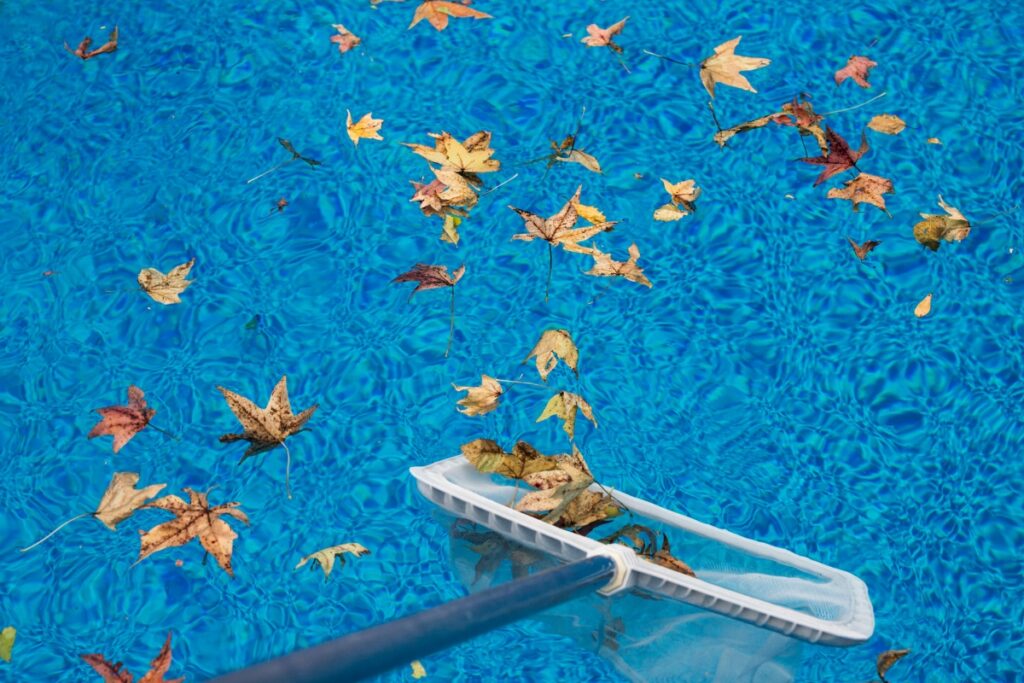
One of the most important aspects of closing your pool for winter is properly maintaining all the equipment and accessories. By taking care of your pool accessories, you can ensure that they will be in good condition when you reopen your pool in the spring.
Starting with the pool cover, it is crucial to clean and dry it thoroughly before storing it away. With a pool cover pump, remove any excess water or debris that has accumulated on the cover. Once it is completely dry, fold it carefully to avoid any tears or damage. Storing the pool cover in a dry and clean area will help prolong its lifespan.
Next, let’s focus on the pool pump and filter. Begin by turning off the pump and filter system, and make sure to drain any remaining water from the pump and filter. Removing the drain plugs and opening all the valves will allow any trapped water to escape. It is also a good idea to clean the filter thoroughly to remove any debris that may have accumulated during the pool season. Store the pump and filter in a dry and protected place to prevent any damage from the winter weather.
Don’t forget about the pool ladder or steps. If they are removable, take them out of the pool and clean them thoroughly. Remove any dirt, algae, or debris that may have accumulated on the steps or ladder. Once they are clean and dry, store them in a safe place to prevent any damage.
Another essential pool accessory that requires maintenance is the pool heater. Turn off the gas or electricity supply to the heater and make sure it has completely cooled down. Clean the heater thoroughly, removing any debris or dirt that may have accumulated. If you have a gas heater, it is crucial to turn off the gas supply and secure the gas line to prevent any leaks or accidents during the winter.
Lastly, let’s not forget about the pool toys and floats. Before storing them away, clean them thoroughly with soap and water. Make sure they are completely dry to prevent any mold or mildew growth. Storing them in a dry and ventilated area will help prolong their lifespan.
Preventing Damage: Tips for Winter Pool Care
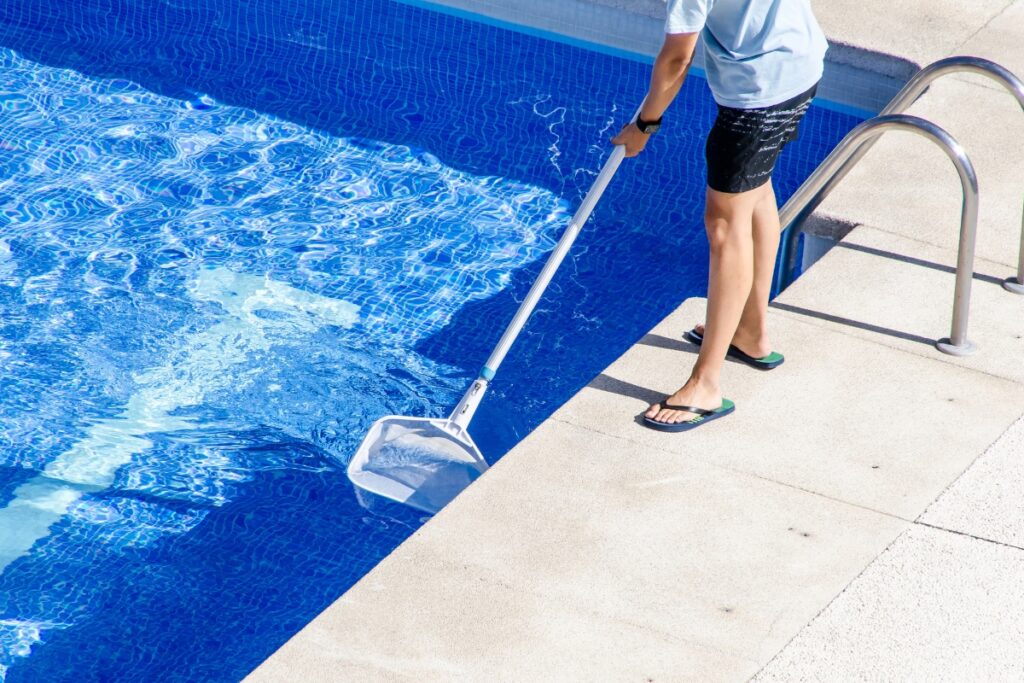
Winter can be a challenging season for pool owners, as the harsh weather conditions can cause damage to your pool if not properly cared for. However, with the right tips and precautions, you can prevent any potential damage and ensure that your pool remains in good condition throughout the winter months. Here are some valuable tips for winter pool care that will help you maintain the longevity of your pool:
- Clean and balance the water: Before closing your pool for winter, it is crucial to clean it thoroughly. Remove any debris, leaves, or dirt from the water and vacuum the pool using a pool cleaner. Additionally, test the water chemistry and balance the pH levels to prevent any potential damage caused by imbalanced water.
- Lower the water level: To prevent any damage due to freezing, lower the water level in your pool. As water expands when it freezes, maintaining a lower water level will give it room to expand without causing damage to the pool walls or equipment.
- Protect your pool equipment: Winterize your pool equipment to prevent damage caused by freezing temperatures. Start by draining the pool equipment, such as pumps, filters, and heaters, and remove any excess water. Store them in a dry and protected area to prevent any potential damage or corrosion.
- Install a pool cover: A sturdy and well-fitted pool cover is essential to protect your pool from debris, harsh weather conditions, and unwanted critters. Ensure that the pool cover is securely fastened to prevent any water or debris from entering the pool.
- Regular maintenance checks: Even during winter, it is important to regularly check on your pool to prevent any potential damage. Remove any excess water or debris that may accumulate on the pool cover. Inspect the pool’s surroundings for any signs of damage or potential issues that may affect the pool’s integrity.
- Properly open your pool in spring: To ensure a smooth transition into the swimming season, it is crucial to properly open your pool in the spring. Remove the pool cover, clean and balance the water, and inspect all pool equipment for any signs of damage or wear. Following a proper opening procedure will help maintain the longevity of your pool and prevent potential issues.
By following these tips for winter pool care, you can easily prevent any damage and ensure that your pool remains in excellent condition throughout the winter season. Taking the necessary precautions and investing time in proper maintenance will save you from costly repairs and extend the lifespan of your pool.
Enjoy a Hassle-Free Winter and a Rejuvenating Swim Next Summer
Winter is approaching, and it’s time to start preparing for the colder months ahead. For those who have a pool, this means it’s time to close it down for winter. Don’t worry, though, because closing your pool doesn’t have to be a hassle. With the right steps and preparation, you can enjoy a hassle-free winter and look forward to a rejuvenating swim next summer.
By following these steps, you can enjoy a hassle-free winter and look forward to a rejuvenating swim next summer. Closing your pool for winter doesn’t have to be a daunting task. With proper preparation and care, you can keep your pool in great condition and ready for the warmer months ahead. So, say goodbye to summer and welcome the winter season knowing that your pool is well taken care of.
To ensure that your pool is kept in top condition all year round, Clear Water Pools of Atlanta is here for you! We do it all, from installation to pool care and maintenance. Ready to give your pool the care it needs? Reach us for a free estimate, or alternatively, call us at 770-406-8638, and let’s have a talk about what we can do for your pool today!


